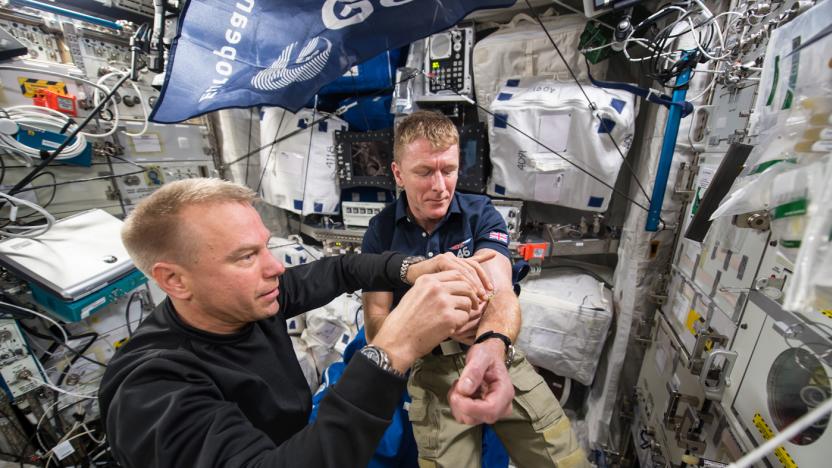universityofottawa
Latest

Experiment to determine why astronauts feel weak back on Earth
Astronauts don't have it easy when they come home, and it's not just because of the change in gravity: their red blood cell production drops while they're in space, leaving them weakened on Earth. But why? That's what a Canadian experiment aboard the International Space Station hopes to find out. The research is testing red and white blood cell functions, as well as bone marrow fat levels, to see how they change before, during and after spaceflight. It should not only show how microgravity (and the resulting lack of activity) affects blood cells, but how reversible the effects are. How soon could you go back to normal?

Canadian researchers aim to build a more life-like robot, one piece at a time
It may not be all that human-like in its current state, but a team of researchers at the University of Ottawa are promising that this robot will get there sooner or later. Dubbed "Pumpkin," the bot will apparently have its parts replaced piece-by-piece with more life-like counterparts over time, including parts that make use of a new artificial skin the researchers have developed. It not only includes the usual array of sensors that give the robot some degree of tactile sensitivity, but a network of tubes that circulate hot water to actually increase the temperature of the skin. According to the researchers, the eventual goal is to have a robot that appears and behaves naturally enough to make humans feel at ease when they're interacting with it, but it might get a bit worse before it gets better -- the next step is to replace the head with an anatomically correct model of the human skull, which will have the aforementioned artificial skin stretched over it. [Thanks, Jeff]

